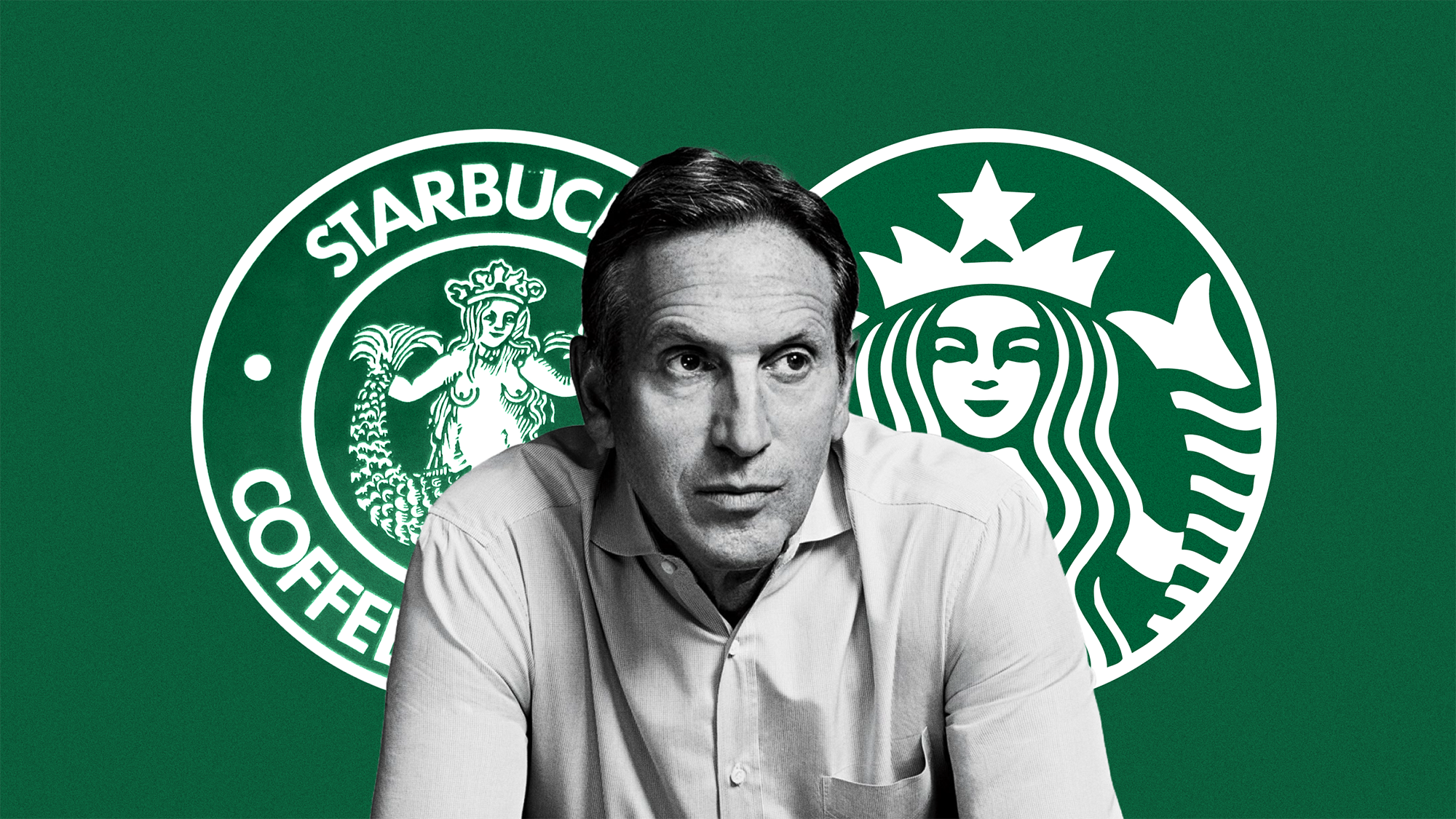Early Life and Career
This experience shaped Schultz’s aim to build a company that honors and respects the dignity of work and the dignity of all men and all women, laying the foundation for his leadership philosophy as a co-founder of impactful initiatives.
Schultz began working at Starbucks in 1982, eventually becoming its CEO and transforming it into a global brand recognized for its innovation and customer focus.
Rise to CEO of Starbucks Coffee Company

Howard Schultz’s journey to becoming the CEO of Starbucks Coffee Company began in 1982 when he joined the company as the director of marketing and operations. At that time, Starbucks had only four stores in Seattle, but Schultz saw immense potential. During a trip to Italy, he was captivated by the vibrant coffee culture and community in Italian espresso bars. Inspired, he envisioned bringing this experience to the United States.
Schultz convinced the company’s founders to test the concept of espresso-based drinks, which proved to be a hit. However, his vision extended beyond just serving coffee; he wanted to create a “third place” between work and home where people could gather and connect. In 1985, driven by this vision, Schultz left Starbucks to start his coffee shop, Il Giornale. The venture was successful, and in 1987, Il Giornale merged with Starbucks, marking Schultz’s return as the company’s CEO.
Under Schultz’s leadership, Starbucks embarked on an aggressive expansion, growing from 11 stores to over 28,000 stores in 77 countries. His innovative approach and focus on customer experience and employee satisfaction transformed Starbucks into one of the most recognized and respected brands globally. Schultz introduced a national loyalty program, enforced fair trade standards, and led the company’s efforts to become a leader in corporate social responsibility.
As CEO and later as executive chairman, Schultz’s leadership style was characterized by his emphasis on innovation and financial success. He also served on the Starbucks board, providing strategic guidance and oversight. Schultz’s vision and dedication not only expanded Starbucks’ footprint but also redefined coffee culture in the U.S. and around the world.
The Birth of Starbucks

Howard Schultz co-founded Starbucks Coffee Company, growing it from 11 stores to over 28,000 stores in 77 countries, with a workforce of nearly 350,000 partners.
Under Schultz’s leadership, Starbucks became the largest coffee-house chain in the world, profoundly influencing coffee culture in Seattle, the U.S., and internationally.
The first store opened in 1971, but Schultz transformed the company into the global brand it is today, redefining how the world enjoys coffee.
Leadership and Innovation as Starbucks CEO

As CEO, Schultz pioneered programs like comprehensive healthcare, stock ownership, and free college tuition for employees, setting a new standard for corporate responsibility.
He was named CEO of the Year by Fortune in 2011 and ranked Starbucks fifth on its list of “World’s Most Admired Companies” in 2019, reflecting his impactful leadership as a co-founder and CEO.
Schultz’s leadership style emphasized the importance of customer experience, employee satisfaction, and innovation, driving Starbucks to remarkable financial success and global recognition.
Philanthropy and Social Impact through the Schultz Family Foundation

Howard and his wife Sheri co-founded the Schultz Family Foundation, dedicated to helping young people navigate the transition to adulthood and fostering their potential.
The foundation focuses on creating greater opportunity and accessibility for all, emphasizing support for successful companies that prioritize social impact, and aligning business success with community betterment.
Through the Emes Project LLC, Schultz brings an entrepreneurial lens to public-private partnerships, strategic advocacy, and policy challenges, driving meaningful change through innovative solutions.
Legacy and Impact

Howard Schultz’s legacy as Starbucks CEO and co-founder is marked by his commitment to innovation, customer experience, and employee satisfaction, setting a high standard for leadership in the corporate world.
Under his leadership, Starbucks became a global brand with a strong reputation for corporate social responsibility, demonstrating how businesses can thrive while prioritizing ethical practices.
Schultz’s impact on coffee culture is undeniable, with Starbucks playing a significant role in popularizing specialty coffee and transforming the way people experience coffee, making it a cornerstone of modern social and cultural life.
Post-Starbucks Ventures

After leaving Starbucks, Schultz has continued to be involved in various ventures as a co-founder, including the Schultz Family Foundation and the Emes Project, focusing on philanthropy and social impact.
He has also been vocal about his political views, expressing criticism of Donald Trump and considering a run for president as a centrist independent, sparking both debate and controversy.
Schultz remains a prominent figure in the business world, with his name synonymous with successful companies and innovative leadership, solidifying his influence beyond Starbucks.






















